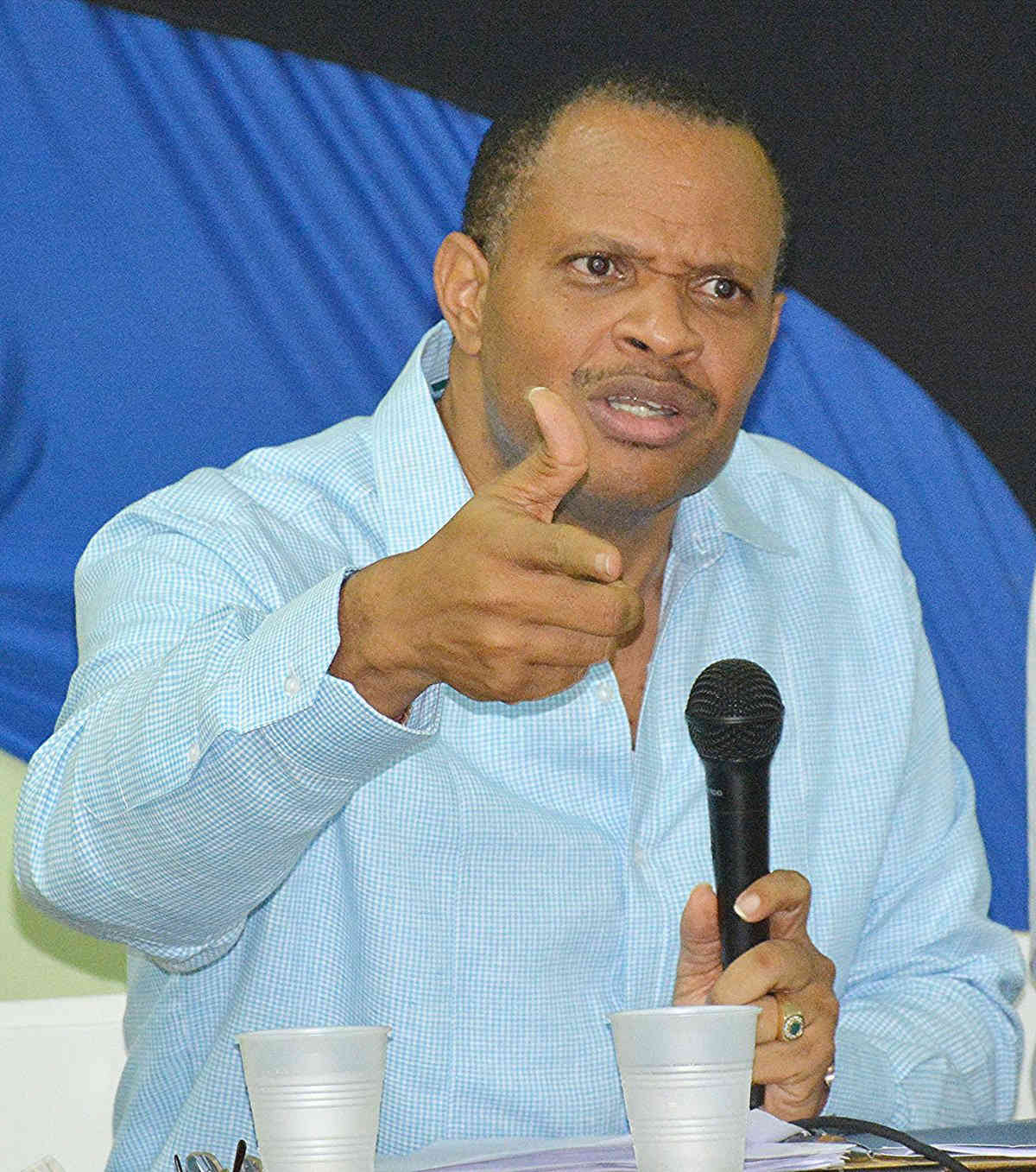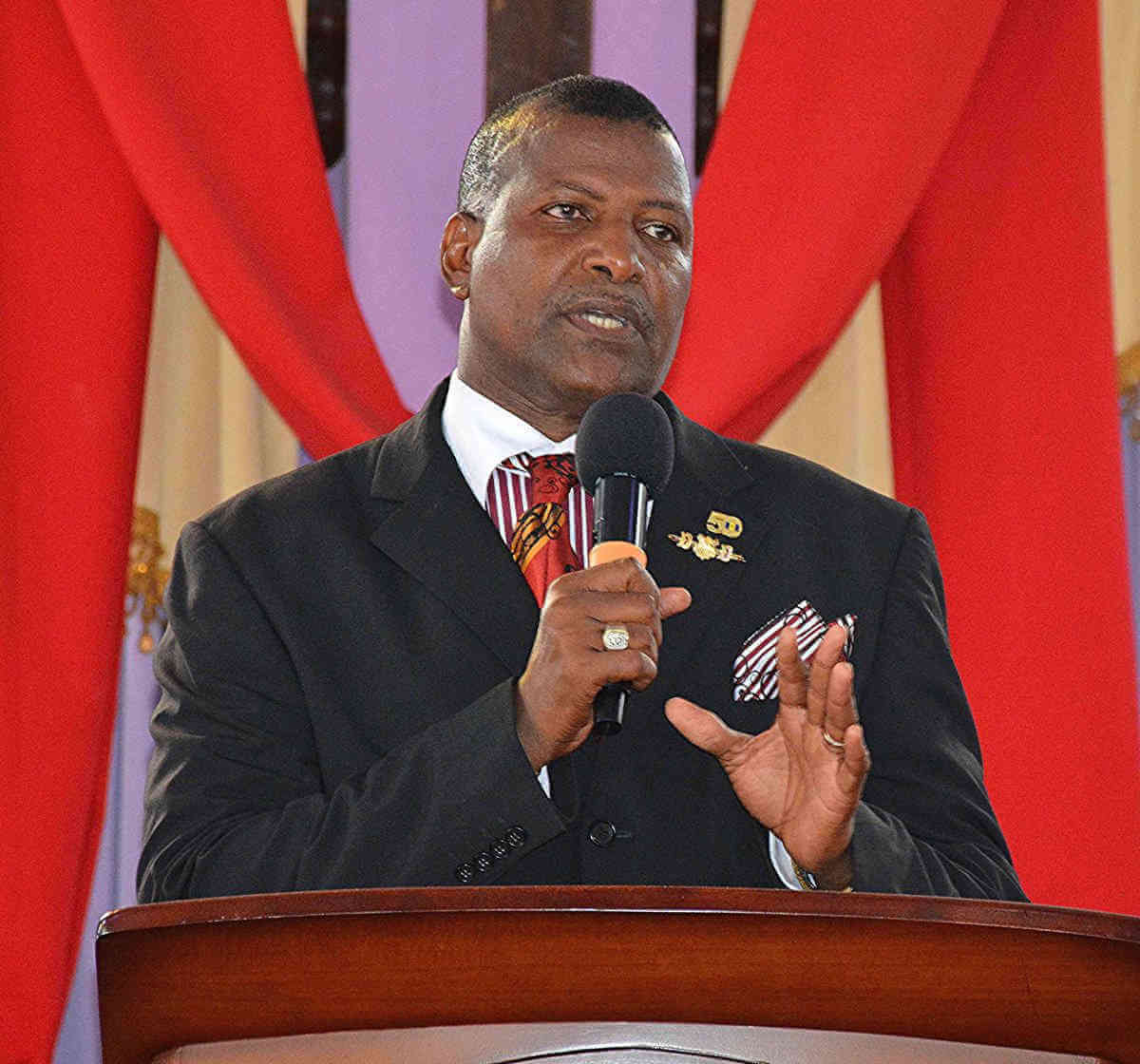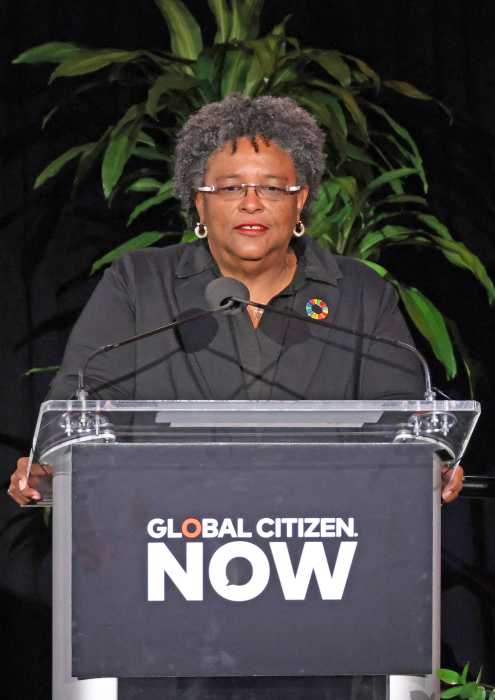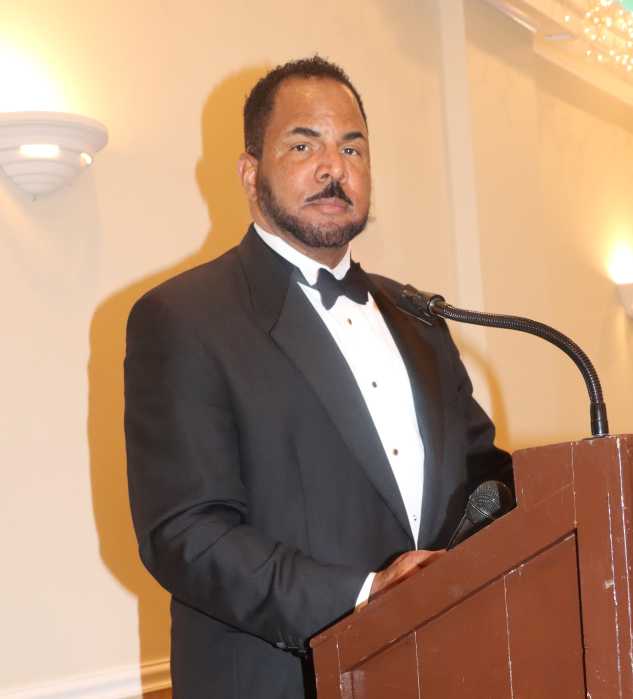With more than a month gone after it tumbled to a record-making defeat at the polls, Barbadians are left to ponder the whereabouts of officials of the once dominant Democratic Labour Party, and the future shape of the party.
Since Mia Mottley led her Barbados Labour Party to a crushing victory over the then-governing DLP by winning all 30 parliamentary seats in the May 24 elections, the vanquished officials who once ruled the Barbados political landscape like giants have been largely silent.
With the exception of a May 25 statement in which he conceded defeat, nothing has been heard from former Prime Minister Freundel Stuart, who — though he rarely spoke during his eight-year tenure as Barbados’ leader — commanded a presence on the rare occasions he chose to speak.
Also missing from the public view is former finance minister Chris Sinckler who, like Stuart, strode on the Barbados public domain like a colossus for a similar number of years.
Sinckler’s absence is even more noticeable — and his silence deafening — because of the number of revelations coming from the new Mottley government about questionable large financial transactions.
Barbadians have taken to social media with meme posts asking for the whereabouts of Sinckler.
Another member of the DLP party’s top echelon from whom not a word has been heard since the defeat is former tourism minister Richard Sealy, the only man who the then-prime minister had trusted to act in his place whenever he, Stuart, left the island.
So far, the only former DLP Cabinet ministers with the courage to face the Barbadian public have been former agriculture and water minister, David Estwick; former industry and commerce minister, Donville Inniss; and former youth and culture minister, Stephen Lashley. Along with ex-senator Verla DePeiza, these three former high-flyers held a one-off press briefing to criticize Prime Minister Mottley’s mini-budget, but did not speak about their party’s shattering defeat.
Their appearance was attributed to their apparent desire to jockey to be the new party leader, more than to concern about the state of the nation’s finances.
A former senator, Andre Worrell, attempted filling the void of silence with a rallying cry to members.
“As long as we do what is necessary in terms of changing the way how this organization operates, how our members behave, how our leaders function. . . the Democratic Labour Party will return” Worrell told a party meeting.
One week later, another former senator, David Durant, took a more direct route to addressing the problems of the humbled DLP when he said a lesson to be learned from the stunning defeat is that the party must “never to take the electorate for granted.
“Apologize. We are not too big to apologize,” Durant said, adding, “be humble enough to accept where the party went wrong. Apologize to the people of our nation for not listening and for anything that was said that hurt them or caused pain and disappointment.”
Outgoing High Commissioner to the UK, Guy Hewitt, a DLP appointee whose name was once floated as a possible candidate in the last elections, said the party ran a “most egregious, homophobic, [bordering] on misogynistic, election campaign, [that] created a serious and fatal disconnect between the government and the governed.”
“There was a sense amongst the populous that the DLP were no longer for the people,” the Nation newspaper quoted Hewitt as saying Monday.
Retired former DLP government minister Hamilton Lashley told Barbados TODAY newspaper Tuesday: “I don’t believe that Barbadians want to see the demise of the Democratic Labour Party, but it has to be a new-look party…We cannot live in the past”.
Whenever the DLP leadership emerges from hiding after the embarrassing electoral wipe-out, it will need to chart a new course or leave the job to a new wave of Barbadians to lead this 63-year-old party – a Bajan institution – back into the people’s confidence.



























